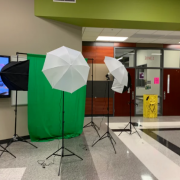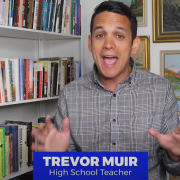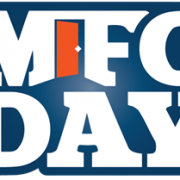Are Early Bloomer Students on Your Radar?
Late bloomers command a lot of attention from teachers, guidance counselors and parents. Perhaps that’s to be expected. Late bloomers seem to need the most help to decide their preferred subjects and majors, to bring their grades up, to pick colleges to apply to . . . and to just generally get themselves on track.
There is even a book, Colleges that Change Lives, published in 2000 with later editions, that is pretty much designed to help late-blooming students figure out their college choices. And CTCL.org, the organization behind Colleges that Change Lives, offers scholarships and assistance to students who seem to take a little longer to figure out what to do with their lives.
But What about Early Bloomer Students?
Yes, they really do exist. They are the students who, long before their peers, seem to have gotten their vocational plans finalized. Common examples include the high school student who wants to be a ballet dancer or a concert pianist, who wants to study robotics, or who wants to be a computer programmer or chemist.
That’s good, right? After all when a kid has found a life direction, it saves everybody a lot of trouble and concern. But is being an early bloomer always a good thing? If you work with or parent secondary-school students, here are some issues to consider.
Are You Underserving Early Bloomer Students by Directing Your Attention Elsewhere?
As a teacher or counselor, it is only natural to do so. Early bloomer students, because they seem to have made critical choices about what to do with their lives demand less attention. But if you have decided to simply let early bloomers “coast” because they are not squeaky wheels, you could be under-serving them. Consider the following question.
Have You Considered that Early Bloomer Students’ Decisions Could Be Wrong?
Let’s say one of your students has decided to be an industrial engineer who will design robots. But was that decision made on sound information about engineering as a career? Did he or she make that decision because of knowledge of his or her aptitudes, or on a romanticized impression of what designing robots is really like? And what about that kid who wants to be a dancer or pianist? Does he or she have the talent and determination to make it in such a competitive field? Does he or she know enough about the business end of entertainment – what is really demanded of a performing artist?
As a parent, teacher, or counselor, part of your job is to provide lots of information, advice and resources to all your students. Just because an early blooming student has said to you, “I know what I want to do” doesn’t mean he or she has made a good decision.
Do You Know Enough to Counsel Early Bloomer Students about Preferred Career Decisions?
We know one high school guidance counselor who said, “I have a student who wants to go to music conservatory to study violin, so she’s taken care of . . . I don’t really know about the performing arts.” Well, part of a counselor’s job is to acquire the knowledge needed to have a good grasp of what students are planning. Granted, that can be hard for high school counselors who have hundreds of students assigned to them. But if you are a counselor who really wants to do a good job of guiding students, learning is part of your job.
To Learn More about How Students Plan
Read “New Research on Hispanic Students Considering STEM Careers,” a recent post on this blog. Then have your students participate in the National Career & College Pathway Study to gain new insights about making educational decisions that align with their interests, passions, and aptitudes. Students who complete the study will receive information on college and career opportunities that match their interests.
Related Posts
New Student Research Identifies “Physics Fans” Who Have an Affection for Physics
Members of Generation Z Feel Tech Anxiety before Starting their Careers
Who Will Tomorrow’s Teachers Be?
New Research Findings: What American Colleges Are Doing to Attract Students
High School Students Are Thinking about STEM Careers in the Wrong Ways










Leave a Reply
Want to join the discussion?Feel free to contribute!